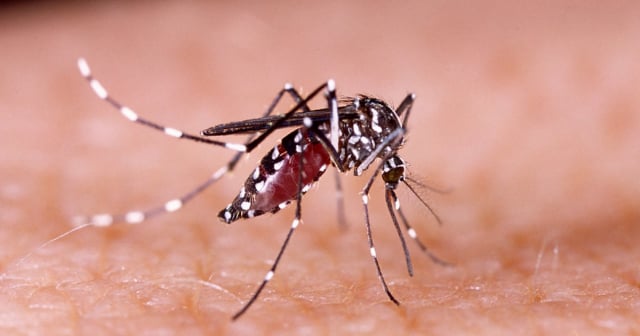Cuba's health authorities reported on Wednesday a "slight decrease" in the cases of dengue and oropouche, although both diseases continue to significantly impact the population, particularly in the eastern regions of the country.
The director of Hygiene and Epidemiology at the Ministry of Public Health (Minsap), Francisco Durán, stated in remarks to state television that diseases transmitted primarily by mosquitoes and sandflies continue to be a significant public health issue, although they have decreased.
However, he did not specify the current number of infected individuals.
Last October, the Ministry of Public Health reported over 17,000 suspected cases of dengue for the year to date, many of which required hospitalization in intensive care units.
In September, 12,000 suspected cases of oropouche were identified, a disease first detected in Cuba in May, which is now spreading throughout the country, partly due to inadequate vector control and health measures on the island.
Durán, who has stated that the country lacks fuel to support fumigation campaigns, urged the public to maintain environmental sanitation and eliminate mosquito breeding sites.
However, he acknowledged that structural issues, such as water runoff in public roads, continue to pose a challenge in controlling the spread of these diseases.
Dengue, which is endemic to Cuba, currently affects 14 of the 15 provinces in the country and is transmitted by the Aedes aegypti mosquito. According to the Pan American Health Organization (PAHO), the island reported over 3,000 confirmed cases of this disease in 2019 and 2022.
On the other hand, oropouche, also known as sloth fever, is transmitted by insects such as the Culex quinquefasciatus mosquito and the jején (Culicoides paraensis). Its symptoms, similar to those of dengue, include fever, muscle and joint pain, vomiting, and diarrhea.
Frequently Asked Questions about Dengue and Oropouche in Cuba
How are dengue and oropouche affecting the Cuban population?
Despite a "slight decrease" in cases, both diseases continue to pose a significant public health issue, particularly in the eastern regions of Cuba.
What measures are being taken to control these diseases in Cuba?
Authorities have urged the public to maintain environmental sanitation and eliminate mosquito breeding sites. However, the country is facing structural problems, such as a lack of fuel for fumigation campaigns and water leaks that hinder disease control efforts.
What are the symptoms of dengue and oropouche?
Dengue and oropouche present similar symptoms, including fever, muscle and joint pain, vomiting, and diarrhea. These diseases are transmitted by insects such as the Aedes aegypti mosquito and the jején.
Filed under:
